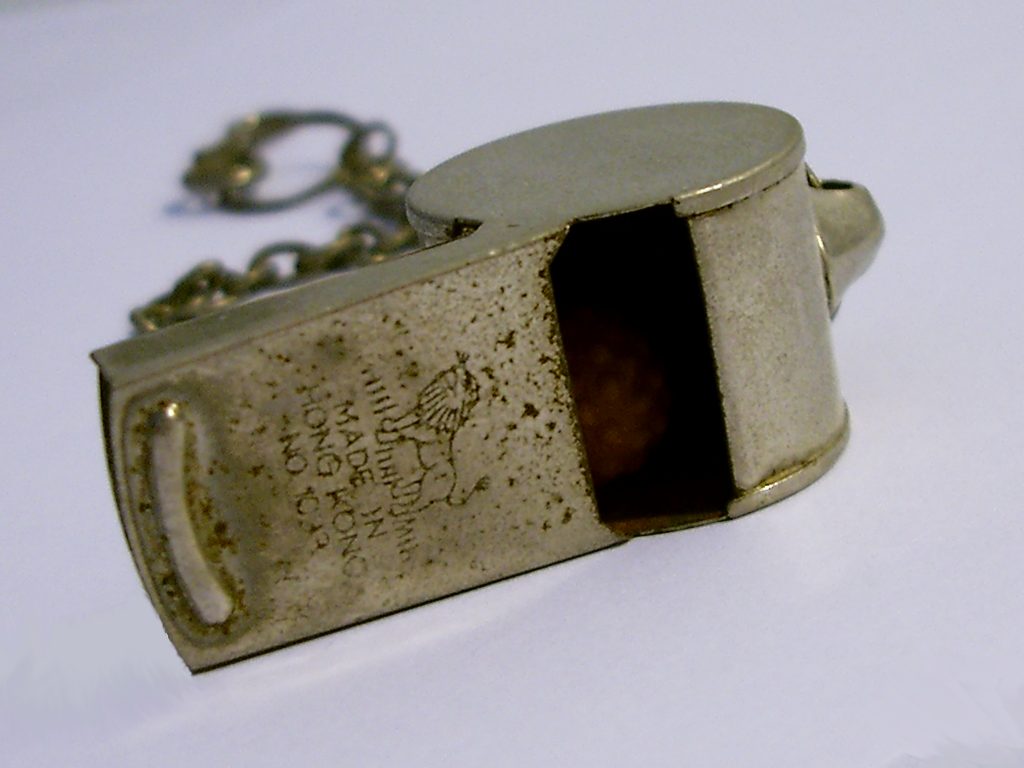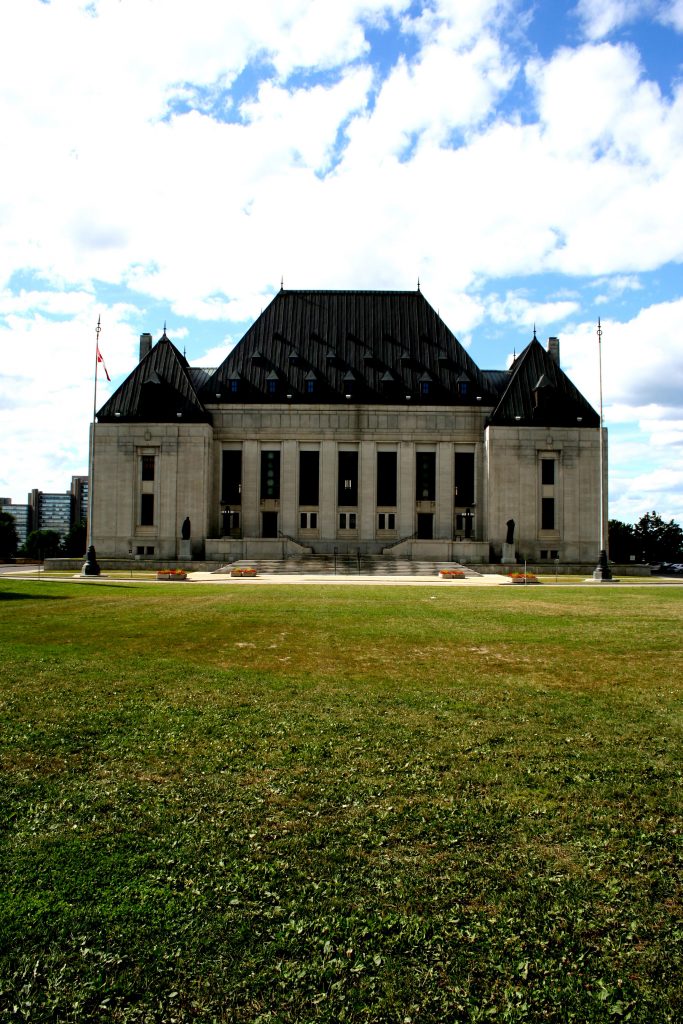 The State of Louisiana has laws in place to protect whistleblowers with legitimate claims. These laws are critical to protecting workers and promoting healthy corporate self-governance. In Louisiana, La. R.S. 23:967 protects an employee whistleblower from retaliatory actions when in good faith, the employee advised the employer of some unlawful practice. It allows the employee to commence a civil action against the employer for the employer’s retaliatory actions. In a recent case, the U.S. Fifth Circuit Court of Appeal spells out the legal elements required to succeed on a whistleblower claim.
The State of Louisiana has laws in place to protect whistleblowers with legitimate claims. These laws are critical to protecting workers and promoting healthy corporate self-governance. In Louisiana, La. R.S. 23:967 protects an employee whistleblower from retaliatory actions when in good faith, the employee advised the employer of some unlawful practice. It allows the employee to commence a civil action against the employer for the employer’s retaliatory actions. In a recent case, the U.S. Fifth Circuit Court of Appeal spells out the legal elements required to succeed on a whistleblower claim.
Justin Richardson worked for Axion Logistics, LLC, in Baton Rouge. Axion promoted Richardson to general manager within two months of hiring him. Shortly thereafter, Richardson became aware that two Axion employees were fraudulently billing an Axion client. Richardson reported these acts up the chain of command, including Axion’s president, its CEO and its CFO.
At one point, Axion’s CEO requested that Richardson not to tell anyone about the matter. Axion’s CEO and president allowed the illegal practice when they refused to inform the client. Subsequently, Richardson expressed to the CFO that Richardson would notify the client if Axion was unwilling to do so. A few weeks thereafter, Axion management criticized Richardson’s job performance. The president then terminated Richardson’s employment within a month, on the grounds that Richardson “was not a good fit” for the company.
 Louisiana Personal Injury Lawyer Blog
Louisiana Personal Injury Lawyer Blog


 Getting a judgment in your favor can often feel like a big win in court. After a judgment has been declared by the court many people believe the losing side simply gets out their checkbook and pays what they owe. While this may happen in some cases, many times after getting a judgment a person must fight an uphill battle to collect on that judgment. This is exactly what happened when a Louisiana company, Monster Rentals, obtained a default judgment against Coonass Construction of Arcadia (CCA).
Getting a judgment in your favor can often feel like a big win in court. After a judgment has been declared by the court many people believe the losing side simply gets out their checkbook and pays what they owe. While this may happen in some cases, many times after getting a judgment a person must fight an uphill battle to collect on that judgment. This is exactly what happened when a Louisiana company, Monster Rentals, obtained a default judgment against Coonass Construction of Arcadia (CCA).  Language is key when it comes to the law. A court cannot give a plaintiff what he or she asks for if the request is vague. In a similar vein, a judgment’s lack of certain magic words can render it defective. Words have precise meanings in order to be given legal effect. This is illustrated by a recent of the Louisiana Fourth Circuit Court of Appeal. In this case, the Court of Appeal found that a trial court’s judgment lacked the required decretal language required to give the document legal effect.
Language is key when it comes to the law. A court cannot give a plaintiff what he or she asks for if the request is vague. In a similar vein, a judgment’s lack of certain magic words can render it defective. Words have precise meanings in order to be given legal effect. This is illustrated by a recent of the Louisiana Fourth Circuit Court of Appeal. In this case, the Court of Appeal found that a trial court’s judgment lacked the required decretal language required to give the document legal effect. Excessive police force has become a nightly topic in the American news cycle. Ranging from discrimination to life-and-death situations, no one wants to be on the receiving end of mistreatment. In a recent case, a Louisiana woman experienced what she felt was excessive force by law enforcement officers in her own home. The Court of Appeal, however, disagreed. In its decision, the Court of Appeal discussed the burden of proof necessary to succeed on civil rights claims against government officers.
Excessive police force has become a nightly topic in the American news cycle. Ranging from discrimination to life-and-death situations, no one wants to be on the receiving end of mistreatment. In a recent case, a Louisiana woman experienced what she felt was excessive force by law enforcement officers in her own home. The Court of Appeal, however, disagreed. In its decision, the Court of Appeal discussed the burden of proof necessary to succeed on civil rights claims against government officers. When a plaintiff files a lawsuit, he or she must make sure that the filing is done in the right court at the right time. The court hearing the dispute must have the power to adjudicate and resolve those claims. Sometimes, certain legal doctrine can bar a court from hearing a case, such as sovereign immunity. And similarly, cases can only be decided if the timing is right – the claim must not be brought to early or too late. The effect of filing the claim in the wrong court or at the wrong time can lead to a dismissal, wasting a substantial amount of time and money. In a recent decision, the United States Fifth Circuit Court of Appeal found that a case against the Secretary of the Louisiana Department of Wildlife and Fisheries was both barred by sovereign immunity and not ripe for adjudication.
When a plaintiff files a lawsuit, he or she must make sure that the filing is done in the right court at the right time. The court hearing the dispute must have the power to adjudicate and resolve those claims. Sometimes, certain legal doctrine can bar a court from hearing a case, such as sovereign immunity. And similarly, cases can only be decided if the timing is right – the claim must not be brought to early or too late. The effect of filing the claim in the wrong court or at the wrong time can lead to a dismissal, wasting a substantial amount of time and money. In a recent decision, the United States Fifth Circuit Court of Appeal found that a case against the Secretary of the Louisiana Department of Wildlife and Fisheries was both barred by sovereign immunity and not ripe for adjudication. The Louisiana Merchant Liability Statute aims to protect persons from unreasonable risks of harm by unscrupulous merchants. At the same time, it limits the liability of merchants and protects them from frivolous lawsuits. In order to succeed on a merchant liability claim, the plaintiff must show that the merchant knew or should’ve known of the dangerous condition that harmed the plaintiff. In a recent case, while considering that a dance ballroom can be considered a “merchant, the Louisiana First Circuit Court of Appeal found that the plaintiff failed to show that the defendants had knowledge or constructive knowledge of the risk of harm.
The Louisiana Merchant Liability Statute aims to protect persons from unreasonable risks of harm by unscrupulous merchants. At the same time, it limits the liability of merchants and protects them from frivolous lawsuits. In order to succeed on a merchant liability claim, the plaintiff must show that the merchant knew or should’ve known of the dangerous condition that harmed the plaintiff. In a recent case, while considering that a dance ballroom can be considered a “merchant, the Louisiana First Circuit Court of Appeal found that the plaintiff failed to show that the defendants had knowledge or constructive knowledge of the risk of harm. It is no secret that a lawsuit has the potential to become a tangled web of procedural issues. This is why it is always a good idea to secure a good attorney with experience in dealing with the court system. Perhaps less common is the situation where the judge, the party responsible for ensuring an efficient and timely resolution of the dispute, gets tripped up in this procedural web. This is exactly the situation below.
It is no secret that a lawsuit has the potential to become a tangled web of procedural issues. This is why it is always a good idea to secure a good attorney with experience in dealing with the court system. Perhaps less common is the situation where the judge, the party responsible for ensuring an efficient and timely resolution of the dispute, gets tripped up in this procedural web. This is exactly the situation below. When you are in a motor vehicle accident, there are many issues that can arise as to the issue of fault and whose version of events is more reliable. Conflicting versions of what happened can make it difficult for the court to assign fault. It is thus important to always be aware of your surroundings and the laws of driving a motor vehicle, as illustrated in the following case.
When you are in a motor vehicle accident, there are many issues that can arise as to the issue of fault and whose version of events is more reliable. Conflicting versions of what happened can make it difficult for the court to assign fault. It is thus important to always be aware of your surroundings and the laws of driving a motor vehicle, as illustrated in the following case.  In November 2008, in Claiborne Parish, Mr. Fields went to Willis Knighton Claiborne Regional Health Center for complaints of diarrhea. Mr. Fields also had an extended history of medical issues, including hypertension and a kidney transplant. He saw a nurse practitioner, who consulted with a doctor and gave him a prescription for a generic antibacterial, which he took as directed. About a week later, he called his doctor’s office complaining that the medicine was making him feel worse. He alleged that he was instructed to continue taking the medicine as originally directed.
In November 2008, in Claiborne Parish, Mr. Fields went to Willis Knighton Claiborne Regional Health Center for complaints of diarrhea. Mr. Fields also had an extended history of medical issues, including hypertension and a kidney transplant. He saw a nurse practitioner, who consulted with a doctor and gave him a prescription for a generic antibacterial, which he took as directed. About a week later, he called his doctor’s office complaining that the medicine was making him feel worse. He alleged that he was instructed to continue taking the medicine as originally directed. When asserting a claim under constitutional law, the moving party must meet a specific standard that is easily navigated by an attorney. As one Louisiana man recently learned, without the help of a lawyer, navigating these pleading standards can be difficult and detrimental to the outcome of your case.
When asserting a claim under constitutional law, the moving party must meet a specific standard that is easily navigated by an attorney. As one Louisiana man recently learned, without the help of a lawyer, navigating these pleading standards can be difficult and detrimental to the outcome of your case.